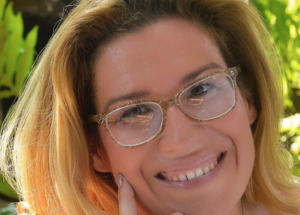A leading anti-independence politician in New Caledonia, Sonia Backes, has rejected calls for the referendum on independence from France to be postponed, saying it should be held as planned.
Pro-independence politicians have asked Paris to postpone the vote — due on December 12 — until next year because of the impact of the covid-19 pandemic on the Kanak population.
About 10,000 mainly Kanak people have been infected since early September and more than 200 patients have died.

In a letter to her rivals, Backes, who is the president of the Southern Province government, said campaigning should resume as vaccinations are being ramped up, and soon 80 percent of those over 12 would be vaccinated.
She said it was the pro-independence side, which in April unanimously wanted to have this third referendum, when there could have been the option of negotiating a way forward instead of seeking a divisive vote.
Backes said talk of a boycott was misplaced because there was no basis for such a stance, wondering how the United Nations and the observers would be able to understand such a move.
She said waiting for an outcome of the vote stops all initiative, hampers economic development and discourages people who wanted to have a perspective and a future.
French Overseas Minister Sebastien Lecornu, who met New Caledonian leaders in Noumea last weekend, wants to maintain the December date he set in June.
He said only an out-of-control pandemic could justify a postponement.
In 2018 and 2020, a majority voted against independence, but the winning margin shrank from 56.7 percent to 53.3 percent.
250 extra French police
France has flown a batch of 250 police reinforcements to New Caledonia as part of preparations for the independence referendum.
The officers, who are fully vaccinated, were received by the French High Commissioner Patrice Faure and General Jean-Marc Descoux, who oversees security for the referendum process.
Minister Lecornu said a total of 2000 police would be brought in for the plebiscite, marking a substantial strengthening of the force compared to the previous two referendums in 2018 and 2020.
He said in a great democracy there could be no feeling of insecurity.
After the 2018 plebiscite, rioting south of Noumea closed the main road, which police managed to reopen after two days.
Lecornu, who ended a two-week visit to New Caledonia on Monday, confirmed Paris wanted the referendum to be held well before the French presidential election due in April.
According to the Noumea Accord, the third and last vote must be held within two years of the previous vote.
This article is republished under a community partnership agreement with RNZ.
This post was originally published on Asia Pacific Report.